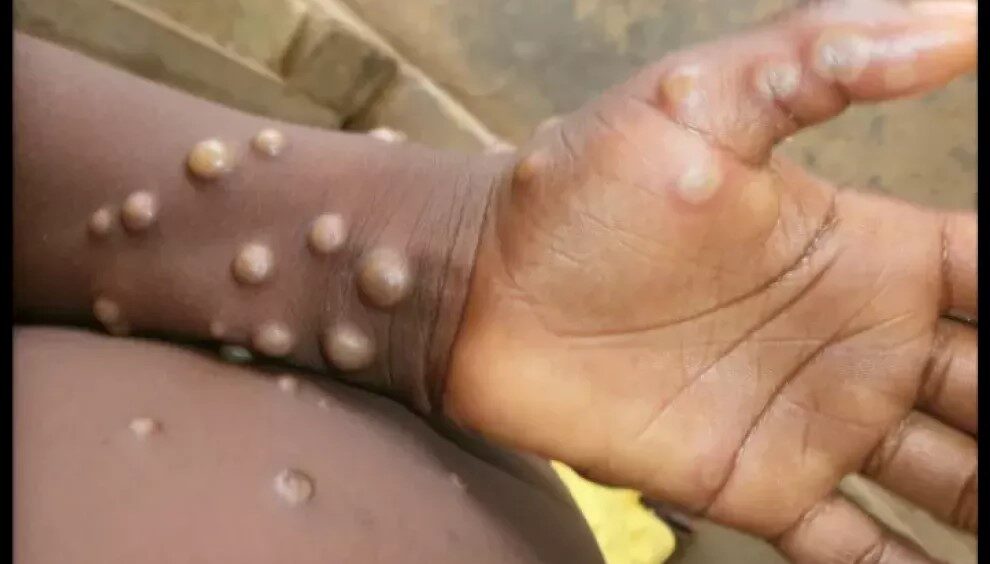Uganda Reports 222 Mpox Cases as Kampala Faces Highest Infections

Uganda’s mpox outbreak has reached 222 confirmed cases across 21 districts, with Kampala reporting the highest infections. Health officials urge preventive measures, including isolation, hand hygiene, and respiratory care, especially for high-risk groups like caregivers and those with compromised immunity.
The number of confirmed mpox cases in Uganda has risen to 222, with the capital city of Kampala registering the highest number of new infections at 85, as reported in the Mpox Outbreak in Uganda Situation Update dated October 28, 2024.
A total of 41 cases have been confirmed in Nakasongola and 39 in Wakiso, affecting 21 districts. Two new confirmed cases have been reported, one each in Kasese and Maracha. One death has been recorded, indicating a case fatality rate of 0.45%.
According to the report, 27 cases are yet to be transferred to treatment units. Currently, 111 patients are admitted, and 84 individuals have recovered.
Additional districts with confirmed cases include Mayuge (13), Kasese—where the outbreak began (9), and Mukono (6). Buliisa, Masindi, and Nakaseke each report four cases, while Mityana has three confirmed cases. Mbarara, Nakaseke, and Adjumani have two cases each, and Amuru, Isingiro, Kanungu, Lwengo, Luuka, Kagadi, and Dokolo each report one case.
Active treatment units are operational in the districts of Nakaseke, Nakasongola, Kasese, Wakiso, Adjumani, Kabale, Isingiro, Buliisa, Dokolo, and Mbarara.
Zoonotic Disease
Mpox is a zoonotic disease transmitted from animals to humans, primarily through contact with infected animals such as squirrels, rats, mice, or monkeys. It can also spread from person to person through direct physical contact, including kissing or sexual contact with an infected individual.
Dr. Annet Alenyo Ngabirano, WHO’s technical lead on case management, notes that infected pregnant women and breastfeeding mothers can transmit the virus to their babies through close contact during and after birth. Additionally, infection may occur through inhaling droplets from an infected person or contact with contaminated materials like bedding, clothing, or needles.
Signs and Symptoms
Dr. Henry Bosa Kyobe, the incident commander of mpox in Uganda’s health ministry, describes mpox symptoms as developing in two phases.
The initial phase is marked by fever, body aches, and a runny nose, lasting several days. In the second phase, individuals develop a skin rash and swollen lymph nodes in the neck, armpits, and groin. Additional symptoms may include sore throat, headache, back pain, and general body weakness.
Who is Most at Risk
While everyone is at risk of contracting mpox, certain groups are at heightened risk:
Individuals in close contact with mpox patients, such as household members.
Sexual partners, including commercial sex workers and those with multiple sexual partners.
Caregivers not using appropriate personal protective equipment.
Children under 15 years.
Individuals with compromised immune systems, such as those living with HIV.
The elderly, especially those above 60 years.
Managing and Preventing Mpox
Dr. Annet Alenyo Ngabirano of WHO offers the following guidance on management and prevention:
Patients confirmed to have mpox should be admitted to an isolation facility and educated on the disease, the mode of transmission, and the risks of spreading it to others.
They receive supportive care, including medications, mental health, and psychosocial support, as well as nutrition and infection prevention guidance, such as wearing long-sleeved clothing to cover wounds.
Mpox patients should avoid physical or intimate contact, including sexual activity, until the rash has cleared. During recovery, safer sex practices, like condom use for 12 weeks, are recommended by WHO.
Infected individuals should not share linens, towels, or personal care items with others.
All individuals, especially mpox patients, should regularly practice hand hygiene by washing hands with soap and water or using an alcohol-based hand rub, and frequently cleaning surfaces.
Avoid handshakes, hugs, and pecks, particularly when symptomatic.
Respiratory hygiene is essential for mpox patients: coughs and sneezes should be covered with an elbow or tissue, tissues should be disposed of immediately, and hands should be washed afterward.
Background
On August 14, 2024, the WHO declared mpox a public health emergency of international concern for the second time in two years. This declaration followed the African CDC’s designation of mpox as a public health emergency of continental security. These announcements emphasize the seriousness of the outbreak and the necessity for coordinated efforts to curb the spread of the disease.







